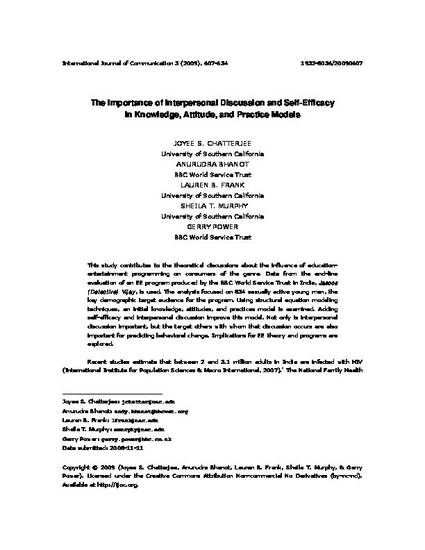
- Interpersonal communication,
- Behavior health promotion,
- Condoms -- Social aspects,
- Psychological aspects,
- Self-efficacy,
- Social norms,
- Structural equation modeling
This study contributes to the theoretical discussions about the influence of education-entertainment programming on consumers of the genre. Data from the end-line evaluation of an EE program produced by the BBC World Service Trust in India, Jasoos (Detective) Vijay, is used. The analysis focused on 834 sexually active young men, the key demographic target audience for the program. Using structural equation modeling techniques, an initial knowledge, attitudes, and practices model is examined. Adding self-efficacy and interpersonal discussion improve this model. Not only is interpersonal discussion important, but the target others with whom that discussion occurs are also important for predicting behavioral change. Implications for EE theory and programs are explored.
Copyright © 2009 by the authors (Joyee S. Chatterjee, Anurudra Bhanot, Lauren B. Frank, Sheila T. Murphy, & Gerry Power).
This work is licensed under a Creative Commons Attribution-NonCommercial-NoDerivatives 4.0 International License.
